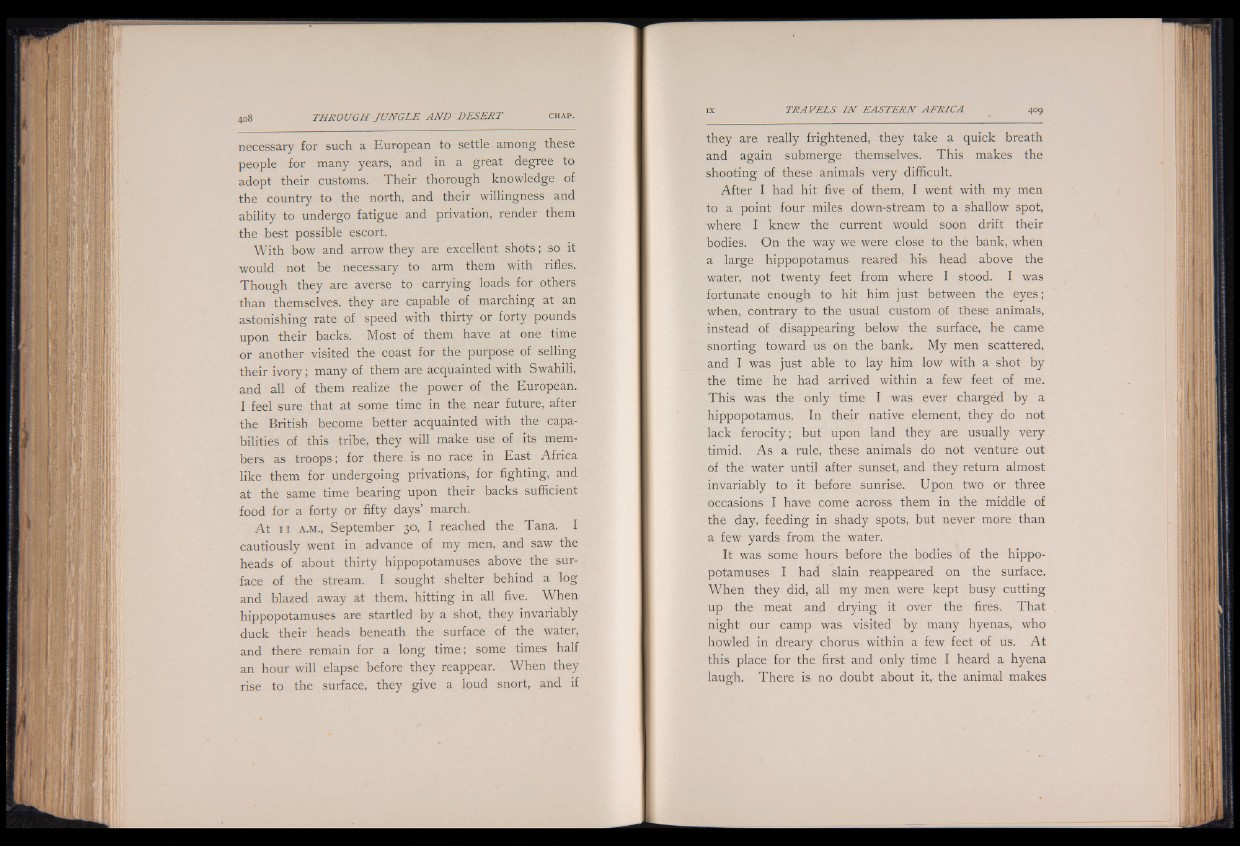
necessary for such a European to settle among these
people for many years, and in a great degree to
adopt their customs. Their thorough knowledge of
the country to the north, and their willingness and
ability to undergo fatigue and privation, render them
the best possible escort.
With bow and arrow they are excellent shots; so it
would not be necessary to arm them with rifles.
Though they are averse to carrying loads for others
than themselves, they are Capable of marching at an
astonishing rate of speed with thirty or forty pounds
upon their backs. Most of them have at one time
or another visited the coast for the purpose of selling
their ivory; many of them are acquainted with Swahili,
and all of them realize the power of the European.
I feel sure that at some time in the near future, after
the British become better acquainted with the capabilities
of this tribe, they will make use of its members
as troops; for there is no race in East Africa
like them for undergoing privations, for fighting, and
at the same time bearing upon their backs sufficient
food for a forty or fifty days’ march.
A t i i a .m ., September 30, I reached the Tana. I
cautiously went in advance of my men, and saw the
heads of about thirty hippopotamuses above the surface
of the stream. I sought shelter behind a log
and blazed away at them, hitting in all five. When
hippopotamuses are startled by a shot, they invariably
duck their heads beneath the surface of the water,
and there remain for a long time; some times half
an hour will elapse before they reappear. When they
rise to the surface, they give a loud snort, and if
they are really frightened, they take a quick breath
and again submerge themselves. This makes the
shooting of these animals very difficult.
After I had hit five of them, I went with my men
to a point four miles down-stream to a shallow spot,
where I knew the current would soon drift their
bodies. On the way we were close to the bank, when
a large hippopotamus reared his head above the
water, not twenty feet from where I stood. I was
fortunate enough to hit him just between the eyes;
when, contrary to the usual custom of these animals,
instead of disappearing below the surface, he came
snorting toward us on the bank. My men scattered,
and I was just able to lay him low with a shot by
the time he had arrived within a few feet of me.
This was the only time I was ever charged by a
hippopotamus. In their native element, they do not
lack ferocity; but upon land they are usually very
timid. As a rule, these animals do not venture out
of the water until after sunset, and they return almost
invariably to it before sunrise. Upon two or three
occasions I have come across them in the middle of
the day, feeding in shady spots, but never more than
a few yards from the water.
It was some hours before the bodies of the hippopotamuses
I had slain reappeared on the surface.
When they did, all my men were kept busy cutting
up the meat and drying it over the fires. That
night our camp was visited by many hyenas, who
howled in dreary chorus within a few feet of us. A t
this place for the first and only time I heard a hyena
laugh. There is no doubt about it, the animal makes